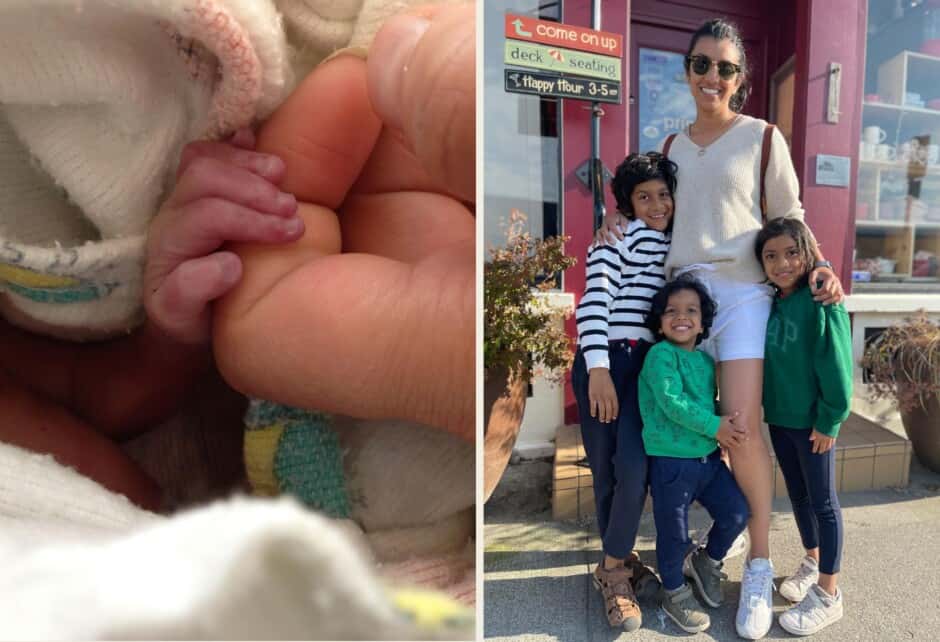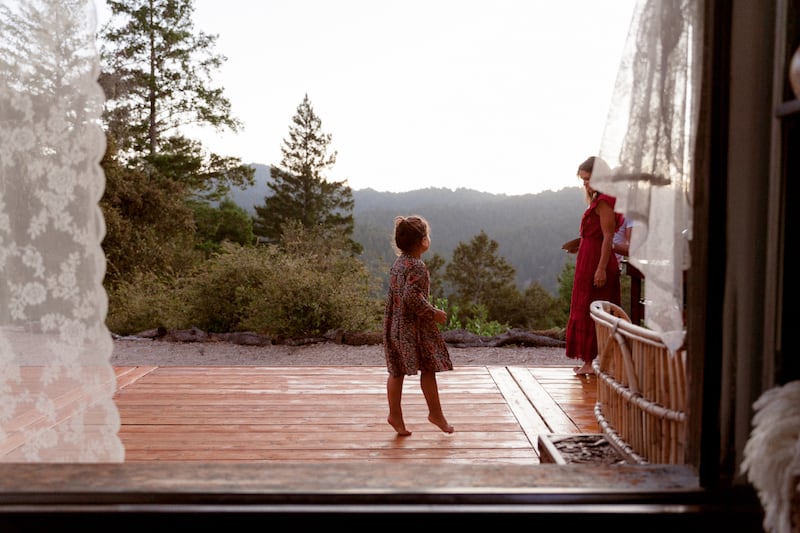
Mom Talk: Why We Need To Teach Feminism Differently to Girls
Written by Julie Merberg
Photography by Photo by Emily Scott; Book ILLUSTRATIONS BY MICHÉLE BRUMMER EVERETT
Today’s Mom Talk comes from Julie Merberg, whose four sons (and their gross habits) inspired her to write My First Book of Feminism (for Boys). Exactly one year after the release of that best seller (as well as her essay for MOTHER about why she felt compelled to write it), she is back with another kid-friendly primer on feminism, this one written specifically for little girls. Today Julie explains why it’s important to teach feminism differently to girls and boys and to give us a sneak peak of her newest title, My First Book of Feminism.
Last year, I wrote and published a book called My First Book of Feminism (for Boys), which was largely inspired by my own four sons, and the lessons I wish I’d done a better job of instilling when they were still young enough to think I was the smartest person in the world. The book talks about respecting women and girls. And, in a super simple way, it breaks down toxic masculinity by encouraging boys to express emotions other than anger, play with all kinds of toys, and aspire to a variety of careers. The book struck a chord with other left-leaning boy parents (and pissed off the right-leaning crowd). We got 5-star love and 1-star hate and nothing much in between. We also received messages from parents asking “are you going to publish My First Book of Feminism for Girls?” Such a good question! I had been so immersed in my smelly-sock boy universe—so concerned that the onus of equality did not rest solely on girls’ shoulder—that I neglected to realize that hey, girls need to learn about feminism, too!
Though boys and girls are equal, explaining feminism to little girls is not the same as teaching young boys respect. My new book, My First Book of Feminism, written for very little girls, is all about equality and sisterhood. It’s about raising your voice and embracing ambition, de-emphasizing physical beauty, and lifting up others. In many ways, it is the flip side of feminism for boys. Take strength, for example: Boys will start to flex their mushy little muscles as soon as they can stand. They need to understand that muscles aren’t a singular measure of strength—that it’s important to stick up for others and that they should use their strength wisely. They need to tone it down. In contrast, girls need positive messaging around strength. Girls are not typically celebrated for being fierce and powerful, physically or otherwise. They need to absorb the idea that being strong is a good thing.
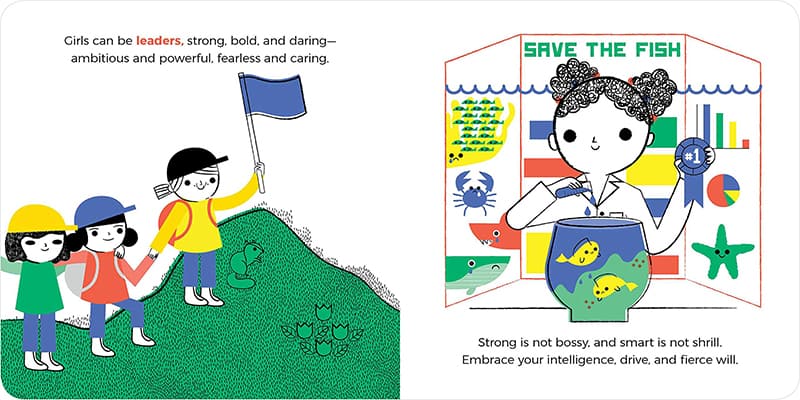
Too often, smart, forceful women are dismissed or despised. If I had a dollar for every time I heard someone say Elizabeth Warren is too bossy, I’d donate every penny to her campaign and laugh all the way to my free mammogram. Female strength-shaming is systemic. In researching for this little book, I found a 2018 study of language used in military performance evaluations of men and women, published in the Harvard Business Review. Researchers determined that women who were objectively evaluated as being on par with their male peers—who were considered leaders—were consistently described with more negative and fewer positive attributes. In other words, being a male leader is considered a good thing. Being a female leader, not so much.
This language double standard isn’t just an issue for women in politics or the military, but for women who strive to succeed in many fields. Tory Burch (the global fashion entrepreneur who, incidentally, was my one of my college roommates), launched her “Embrace Ambition” campaign to call out the double standard that allows certain attributes to be considered a positive for successful men, and a negative for women at the top of their field. My First Book of Feminism tackles these same issues—not for masters of the universe, but for girls who are just learning to talk. If they can grow up believing that “strong is not bossy and smart is not shrill,” if they have an innate understanding that qualities like persistence and bravery are things we should value, then maybe, just maybe, the world will be a better place.
My mom was ahead of the curve on this point. When my sister and I were little, any time a grown-up would tell my mother that her daughters were pretty, my mom would quip, “Better yet, my girls are very smart.” She knew and instilled in us the lesson that smart trumps pretty (and it warms my heart when I hear my sister repeating the same thing to anyone who dares to compliment her girls on their appearance). De-emphasizing beauty is not a lesson boys need to learn because they are never taught to worry or even think about their looks.
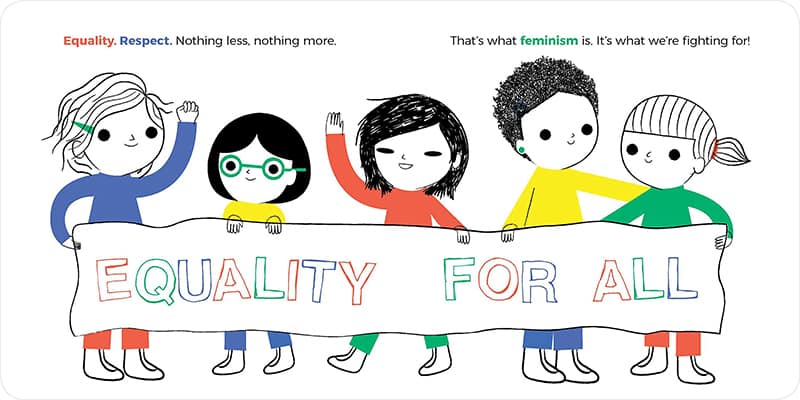
Granted, today, the fight is not about equal rights—the feminist cause has become more nuanced, the relevance more subtle. I had the unique joy of discussing this new new wave feminism with a group of 10-year-old girls in our exceedingly progressive NYC public school. I was invited to my son’s fifth grade class last spring to talk about activism. (To set the stage, these kids spent their last five months of elementary school studying social justice.) And these very privileged children raised in a liberal bubble had a hard time believing that gender inequality was still a thing. I told them about angry letters and reviews I’d received last year from men who did not think women should work or have equal rights and from women who didn’t want to raise their boys to be “sissies in pink shirts.” (That is a direct quote.) We talked about how women in Saudi Arabia just recently got the right to drive and about how women in many countries can’t legally own a business or work without their husband’s permission! We turned the conversation toward the importance of lifting up women who are less fortunate than we are; women who live in places that are much more oppressive and far less evolved than Tribeca. These bright-eyed students were able to process the idea that feminism goes beyond the classroom and stretches outside of our own communities, and that equality is a global issue.
Spending that morning on the rug, engaging with so many girls who raised their hands and their voices and spoke up forcefully, thoughtfully, and fearlessly made me hopeful that theirs will be the last generation where inequality is even a thing.
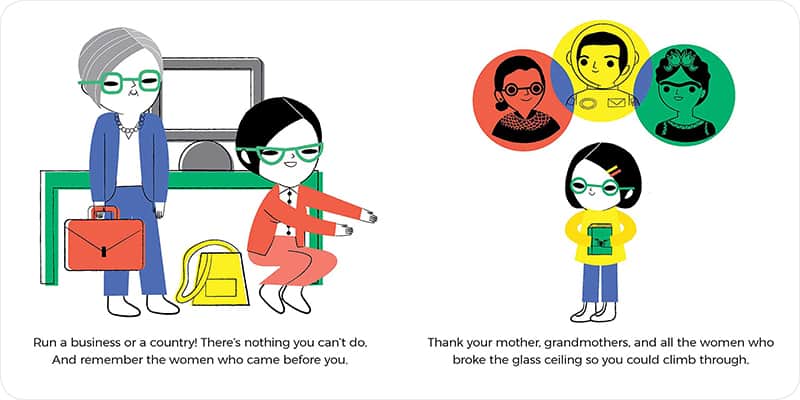
You can scoop up My First Book Of Feminism on Amazon. And for more on this topic, be sure to check out our pieces on How To Raise A Feminist Son, 20 Books For Mini-Feminists, Teaching Consent To A Toddler, How To Combat Gender Stereotypes In The Media Your Kids Consume, The Chore Gap, and Raising “Nice” Boys.
Are you a mother with something to say? Send us an email to be considered for our “Mom Talk” column.
Share this story


